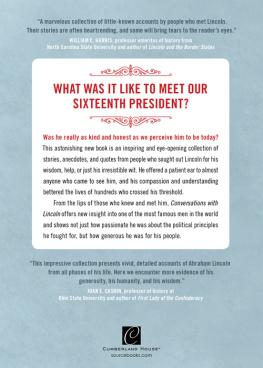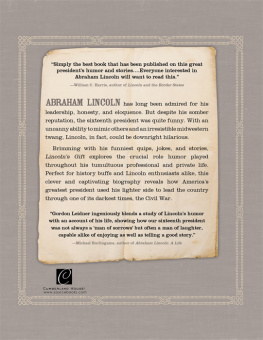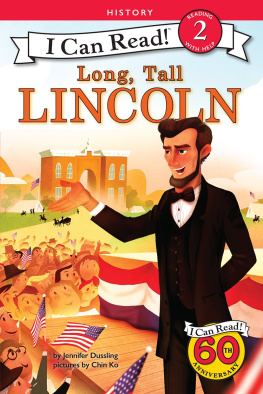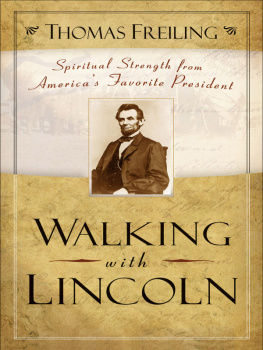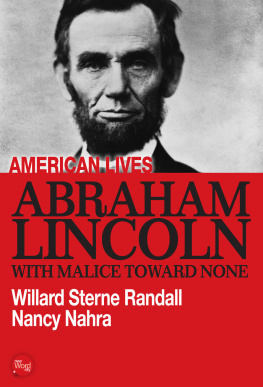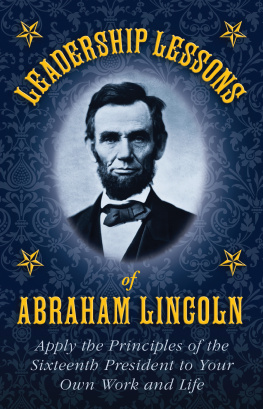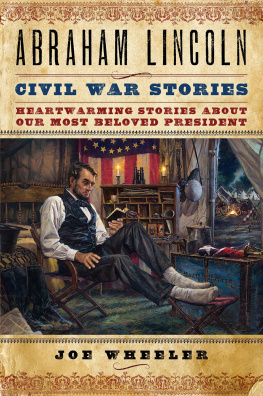Copyright 2016 by Gordon Leidner
Cover and internal design 2016 by Sourcebooks, Inc.
Cover design by Jason Gabbert
Cover image Library of Congress; digital version by Science Faction/Getty Images.
Author photo by Jean Leidner
Sourcebooks and the colophon are registered trademarks of Sourcebooks, Inc.
All rights reserved. No part of this book may be reproduced in any form or by any electronic or mechanical means including information storage and retrieval systemsexcept in the case of brief quotations embodied in critical articles or reviewswithout permission in writing from its publisher, Sourcebooks, Inc.
This publication is designed to provide accurate and authoritative information in regard to the subject matter covered. It is sold with the understanding that the publisher is not engaged in rendering legal, accounting, or other professional service. If legal advice or other expert assistance is required, the services of a competent professional person should be sought. From a Declaration of Principles Jointly Adopted by a Committee of the American Bar Association and a Committee of Publishers and Associations
The vignettes in this book are both composite and actual stories of individuals and couples. In some cases, names have been changed for purposes of anonymity.
Excerpts from Lincoln Among His Friends, used by permission, copyright 1942 by Caxton Press of Caldwell, ID.
Published by Cumberland House, an imprint of Sourcebooks, Inc.
P.O. Box 4410, Naperville, Illinois 60567-4410
(630) 961-3900
Fax: (630) 961-2168
www.sourcebooks.com
Library of Congress Cataloging-in-Publication Data
Names: Leidner, Gordon, author.
Title: Conversations with Lincoln : little-known stories from those who met Americas 16th president / Gordon Leidner.
Description: Naperville, Illinois : Cumberland House, an imprint of Sourcebooks, Inc., 2016. | Includes bibliographical references and index.
Identifiers: LCCN 2015049409 (hardcover : alk. paper)
Subjects: LCSH: Lincoln, Abraham, 1809-1865--Miscellanea. | Presidents--United States--Biography--Miscellanea.
Classification: LCC E457.909 .L46 2016 | DDC 973.7092--dc23 LC record available at http://lccn.loc.gov/2015049409
To my beautiful daughters:
Melony, Sarah, and Cate. Great conversationalists.
CONTENTS
PREFACE
Abraham Lincoln was one of Americas most accessible presidents. In spite of the daily trials of the Civil War, throughout his entire four years at the White House, he kept the executive mansion open to visitors. Practically anyone who was willing to come to the White House and wait for hours in the hallways or waiting rooms received a chance to talk to the leader of the Great Republic.
During sunlight hours on visiting days, guards at the front door rarely interfered with a visitors access. Most people simply walked up to the second floor of the White House, spoke briefly to an attendant, and took a seat in the waiting room. Cabinet members, officers of high rank, and other notable persons such as members of Congress usually had priority, but not always. If the door attendant discerned your business would be of particular interest to the president, you might be moved ahead of the important personages. But, given the presidents busy schedule, people frequently waited for hours or even days. Many gave up before they had their opportunity to talk to him.
Those fortunate enough to attain access to the presidents office frequently found him alone, seated in an armchair, reading or writing. Without ceremony, he would look up from his papers, rise slowly to his great height, and, with a surprisingly warm smile, say, I am glad to meet you or What can I do for you?
Unless the visitors business was conducted quickly, they were usually asked to sit down and tell him all about it. To their surpriseno matter how trivial the subjectthe president was an avid listener. He looked them in the eye and asked pertinent questions. If someone else could better attend to their business, Lincoln would pull out his ever-present pencil and write directions on a piece of paper or ring a bell to summon a secretary, whom he would ask to investigate the matter for him. If the visitors request was something that only the president could address, such as an appeal for a pardon or the release of a soldier from duty, his legal mind took over, and he carefully read any pertinent papers before responding.
Frequently, the visitors requests were granted. President Lincoln was an excellent judge of character, and when he felt it was safe, he took people at their word. When the situation demanded, he asked an attendant to do additional research and sent the visitor away, telling them to come back tomorrow. If he decided their request could not be granted, he told his visitor immediately. Lincoln had earned a reputation for honesty when he was a young man, and now that he was president, he wasnt about to change.
He had soft spots. The requests for mercy from women, particularly widows, soldiers wives, or mothers with children, would rarely be refused. Any request for a soldiers pardon from a death sentence was a priority with him. He searched for any excuse to spare their livesmuch to the frustration of the secretary of war, who flatly told him that his frequent pardons undermined military discipline. Once, when reproached for his refusal to allow a soldier to be shot for cowardice, he stood by his decision and stated, I am just as God made me, and cannot change.
The White House was not the only place where Lincoln encountered the public. People approached him virtually everywhere. Sometimes the president could be seen on the street, pencil in hand, writing out a response to a passerbys request. He could often be found in one of the capitals twenty-five hospitals with a melancholy look in his eye, shaking hands and offering words of encouragement to the wounded. Since soldiers were among his favorite people to visit, he was often in the camps around the capital, reviewing troops or informally chatting with men and officers.
Abraham Lincoln genuinely loved people. Having grown up in a poor family with (as he once said) no wealthy or popular relations to recommend him, he sympathized with visitors, saying he knew how they felt.
Many of the stories herein were recorded by people who personally knew Lincoln in the nineteenth century but are not usually mentioned in contemporary Lincoln biographies. For example, India Frances Brown, a Confederate soldiers wife, broke down in tears while pleading for her husbands life and was quickly comforted by the president when he took her baby into his arms. The former slave Nancy Bushrod forced her way past White House guards in a desperate attempt to see Lincoln on the last day of his life and asked him to help her and her children. Countless soldiers in hospital beds, whose names are lost to history, wept unashamedly when they received a warm handshake or word of kindness from the president who had come to thank them for their sacrifice.
Its all in here. The melancholy appearance, the informal greeting, the warm smile and handshake, the earnest desire to grant a favor, save a life, or tell a funny storythese were all Abraham Lincoln. So open the doorthe president will see you now.

